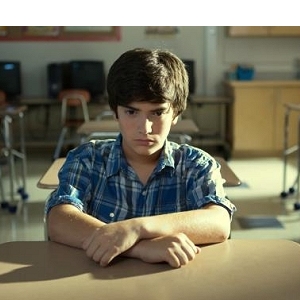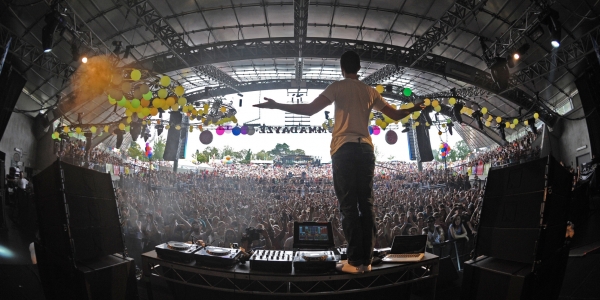“I think Ketchum is a very elegant writer,” says McKee. “He goes to a lot of extreme places in his work that a lot of people are afraid of, and he does scare even Stephen King. But it’s always based in human drama and the harsh realities of the world we live in. He’s only done one supernatural book in his entire career.”
The Woman is a sequel of sorts to Andrew van der Houten’s 2009 thriller Offspring, which was based on another Ketchum novel, and which also featured Polly McIntosh. “I really responded positively to what Pollyanna had done in that film” elaborates McKee. “And I told the producers my idea. If we were going to continue the story we would have to take it in a completely new direction, and take this character who was the villain in the previous film and turn it around and make her the victim. And they loved the idea. Jack and I sat down over a drink and decided it would be a good idea to write the book and the script together.”
But far from being intimidated by Ketchum, McKee found the collaboration a fantastic experience. “I was really worried going in because he’s my father’s age and there’s a big age difference there,” continues McKee. “And he’s written so many great novels and he’s been doing it for so long and I’ve only been doing it for 10 years. So I was worried that there would be a situation where he would go: ‘No kid, this is how it’s done.” But it wasn’t like that all. There was no ego. It was quite effortless. I’d like to do it again.”
McIntosh reprises her role from Offspring.. She is captured by Christopher Cleek (Sean Bridgers, from Deadwood, etc), a small town lawyer, who brings her back to his ranch, and chains her up in his cellar in the hopes of civilising her. The rest of the family reacts in different ways to her presence. McKee slowly strips away the surface veneer of this seemingly typical white bread family to expose deeper layers of corruption.
With The Woman he wanted to make a film that was cut from the same cloth as the movies that Sam Peckinpah made back in the late 60s and 70s, and the films of Tobe Hooper. “I still think The Texas Chainsaw Massacre is the best horror film that will probably ever be made. There’s definitely a sort of homage to him. The Woman is about this messed up family, and Texas Chainsaw Massacre was about this messed up family.
“I wanted to make a very American horror film,” explains McKee, who has had a life long fascination with horror films. “The greatest horror films ever were made in the late 70s and early 80s.” At the age of 12 he saved up money to buy a video camera and with a friend made his own version of A Nightmare On Elm Street! “And I’ve just had the bug ever since!”
The most difficult role to cast was that of Brian, the 12-year old son, whom McKee describes as “the most evil character” in the film. “He’s very much a character that looks up to his father, and wants to have control over his world like his father has. I think that when he grows up he’s going to be a real monster, he’s going to be way worse than even his father,” says McKee. “We didn’t think we were going to be able to cast that part,” he says. “Zack Rand’s was the last audition tape we looked at actually, and his audition was magnificent.”
The Woman has certainly polarised audiences. It received the sort of publicity that money can’t buy following its premiere at the Sundance Film Festival earlier in the year. Following the screening one man stood up and loudly cried out: “Who would make this? Why would anyone show this?” He said that the film degraded women and called for the print to be confiscated and burned. Footage of his rant went viral on YouTube, and had something like 60,000 hits.
“Every single time I do an interview people ask me about it. A lot of people have asked me if we staged that,” adds McKee, “but if I was that smart I think I would have done it. But it was just something that happened. It was a genuine moment.”
“It has worked against him, as people want to see the film more,” adds McKee. “It’s like: “Wow, if that guy blew a gasket, I’ve got to see it!’ We didn’t have a trailer out, we only had the five still photographs at that time, but we didn’t need it as people were talking about it. People talking about an independent film is huge, because we don’t have huge advertising budgets that the big studios have. So when people get talking, I think that’s a really good thing.”
McKee is philosophical about it now, but at the time the incident left him shaken. “I knew the film was going to be shocking and wouldn’t please everybody, and that some people would walk out. It would anger some people given the intense nature of the material, and the frankness of the material. And that guy just blew a gasket! Something had snapped in his head, and it really bothered him a lot, and he felt in his mind that he had to stand up for all the women in the theatre. And the way it turned out, none of the women felt that they needed him to stand up for them. It was pretty strange and it was upsetting, and I could barely talk during the Q&A afterwards. It was almost like my worst nightmare, like someone had taken my intentions the wrong way.
“If everyone liked my movies I guess they wouldn’t be that interesting,” he says with a shrug.

